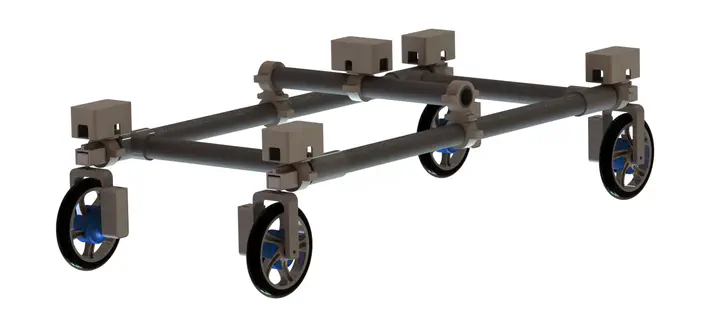 Four-wheel steering robot platform
Four-wheel steering robot platformConducted at Lakehead University, Ontario, this research project focused on enhancing the localization capabilities of a four-wheel steering (4WS) mobile robot through advanced sensor fusion techniques.
Project Overview
Sensor Fusion Implementation: Developed and deployed a ROS-based Extended Kalman Filter (EKF) that intelligently fuses data from multiple sensor modalities including wheel odometry, Inertial Measurement Unit (IMU), and GPS. This multi-sensor approach significantly improved the robot’s state estimation accuracy.
Performance Validation: The implemented EKF system achieved a substantial improvement in localization accuracy, reducing the Absolute Trajectory Error (ATE) by up to 1 meter compared to single-sensor approaches. The system was rigorously validated through both real-world experiments and Gazebo simulation environments, confirming the accuracy of the kinematic and odometry models.
Technical Implementation
- Extended Kalman Filter for non-linear state estimation
- Multi-rate sensor fusion (odometry, IMU, GPS)
- ROS ecosystem for modular software architecture
- Gazebo simulation for validation and testing
- Kinematic modeling for 4WS platforms
This project showcases the importance of probabilistic state estimation and sensor fusion in achieving robust robot localization, particularly for complex mobile platforms with four-wheel steering kinematics.